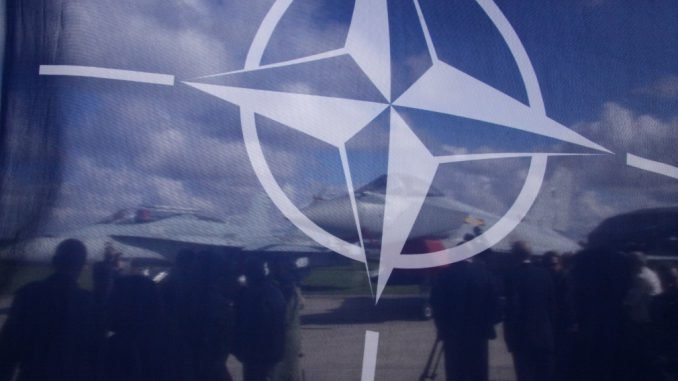
“Vilnius will be as safe as it has ever been before”, says Paulius Nemira, Deputy Director of the Command Security Service (CSD), referring to the NATO Summit in July, which will attract not only the attention of the Alliance’s most important leaders but also of hostile states, Agnė Černiauskaitė is writing at the lrytas.lt news portal.
In an interview with lrytas.lt, he explained how the country’s power structures are preparing to ensure security at the biggest event in Lithuania’s history.
Tell us about the preparations of the VAT officials for the NATO Summit in Vilnius. We know that around 50 foreign delegations will be arriving. How many officials will be working during the meeting? Are they sufficient? What other services will contribute to the security of key NATO member leaders and in what capacity? What are the biggest challenges ahead?
The Lithuanian VAT is coordinating the preparations of all force structures to ensure the security of the NATO Summit. To this end, a Security Subgroup has been established in the Government Working Group on NATO Summit Preparations, which includes all force structures.
The capacity of the Security Service alone will, of course, not be sufficient for an event of this magnitude and will therefore involve a large number of forces from the Police Department, the State Border Guard Service, the Public Security Service, the Fire and Rescue Department, the intelligence services and the army.
Officials will not be on leave and will work without rest days on these days. Planning of security measures and interoperability between all forces involved in the operation is currently underway, and the first training and briefings for the units to be deployed have started.
The biggest challenge will be logistical – coordinating such a large force and the actions of the different services so that they all work together like clockwork.
Equally important is the contribution of Vilnius City Municipality in adapting the city’s infrastructure and preparing changes in public transport traffic in line with the protection plans under preparation. This is particularly important for the smooth running of the event without any major disruptions.
The most important world leaders will arrive under the protection of their own officials. Will there be coordination between our officials and those of foreign countries?
This is standard practice. The security of the arriving country and the host country coordinate in advance every step of the protected person’s agenda and how security will be ensured against various threats.
Failure to agree on security issues immediately creates the risk that the visit itself may not take place, as the guest’s security team reports back to their respective capitals that they cannot guarantee the security of the chosen country, city or facility.
Therefore, it sometimes takes a long discussion to convince and reassure colleagues and allay their fears and concerns. During the visit itself, the visiting foreign security forces become part of a team with local security.
Can you tell us about the general security of politicians at this level? Of course, I am not asking for specifics on how NATO leaders will be protected, but to the extent that you can reveal, what kind of preparation, technical and human resources are required for a visit to Lithuania by a very important person?
The threat level is not the same for all leaders; the assessment is always very individual, depending on the personal activity of the leader, on the policy of the state itself, on threats received, and on previous attempts on the leader or another leader of the country.
Not all countries have the resources to apply the full range of security measures; therefore, security measures vary.
Nevertheless, in each country, all services plan measures to prevent threats to life or limb, protect classified information and the protected person’s privacy, and manage the risk of disruption to the event.
Are our officials sufficiently competent and prepared to provide politicians with the highest level of protection? Does this require additional equipment and knowledge that our officials do not have to date?
The professionalism of our officials is certainly of a high standard and is appreciated by the global community of security institutions. We often do the same job and cover the same competencies or functions with several times fewer resources than the big countries.
Both the IAS and other Lithuanian law enforcement and intelligence agencies have the necessary equipment and qualified personnel, but the scale of this event undoubtedly requires the acquisition of a larger number of different equipment and working tools that might not be needed for individual visits or smaller events of this magnitude.
We are also planning to use specialised units from our colleagues in neighbouring countries to assist with CBRN (chemical, biological, radiological and nuclear protection) inspections and other tasks.
Are there any reports of possible disturbances, provocations or other threats during the NATO Summit in Vilnius?
If we have such knowledge, the services will be ready to deal with them if they arise. I cannot comment further at this point.
In our eyes, Vilnius will be as safe as it has ever been before.


Be the first to comment